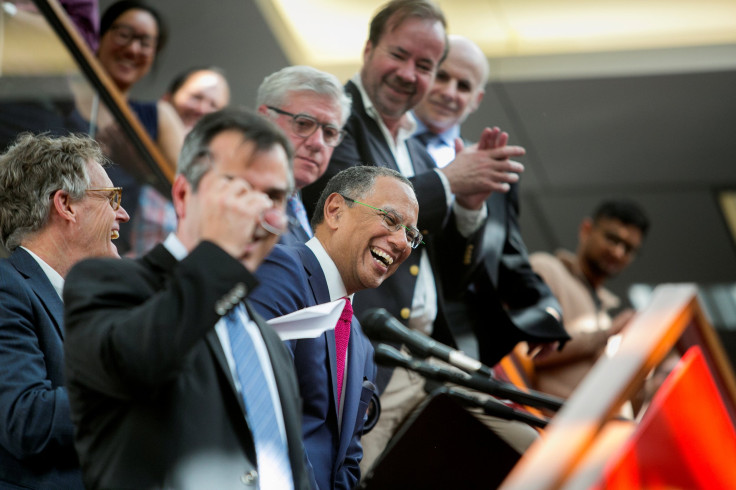Who Is David Fahrenthold? Washington Post Reporter Who Disclosed Trump's 'Access Hollywood' Comments, Wins Pulitzer

Washington Post reporter David Fahrenthold, who disclosed how President Donald Trump made crude comments about women during an unaired portion of an interview on "Access Hollywood" in 2005, won the Pulitzer Prize on Monday for national reporting. Trump had called him a "nasty guy" for investigating his dubious charity foundation claims.
While investigating the documents of the president's charitable foundation during the presidential election in 2016, Fahrenthold called several organizations for information and also provided his readers with real-time social media updates and asked them for additional tips and information on the president. In October 2016, Fahrenthold revealed the "Access Hollywood" tape to the public where Trump was heard boasting about groping women.
What a wonderful day! Thank you all for the good wishes today, and thanks to everyone who helped last year. I'm so incredibly grateful. https://t.co/gUabnrZ6Ux
— David Fahrenthold (@Fahrenthold) April 10, 2017
Fahrenthold's method of sharing his progress on stories via Twitter and openly asking readers for tips and information was given a name at the Washington Post newsroom — it was called the "the Fahrenthold method," according to the Washington Post editor Martin Baron.
Baron joked from the newsroom that "Dave also won by the popular vote," referring to Trump.
"Here’s what Dave did. He never took things at face value. Donald Trump claimed to be a generous guy. A foundation under his name was giving away money. But Dave thought to dig into whether it was really Trump’s money – and typically the answer was no," he said after Fahrenthold won the prize.
Fahrenthold has been a reporter at the Post from 2000 and is also a contributor to CNN. Born in Houston, Texas, he studied at Harvard University and completed his graduation with honors in 2000.
Fahrenthold reacted to the Pulitzer like a typical news reporter, saying: "The point of my stories was not to defeat Trump," he said. "The point was to tell readers the facts about this man running for president. How reliable was he at keeping promises? How much moral responsibility did he feel to help those less fortunate than he?"
Following Fahrenthold's investigation into Trump's charity foundation claims and his subsequent reporting on the issue, the New York attorney general opened an inquiry into the Trump Foundation's fundraising practices, and finally issued a "notice of violation" and ordered the foundation to stop raising money in New York.
© Copyright IBTimes 2024. All rights reserved.






















